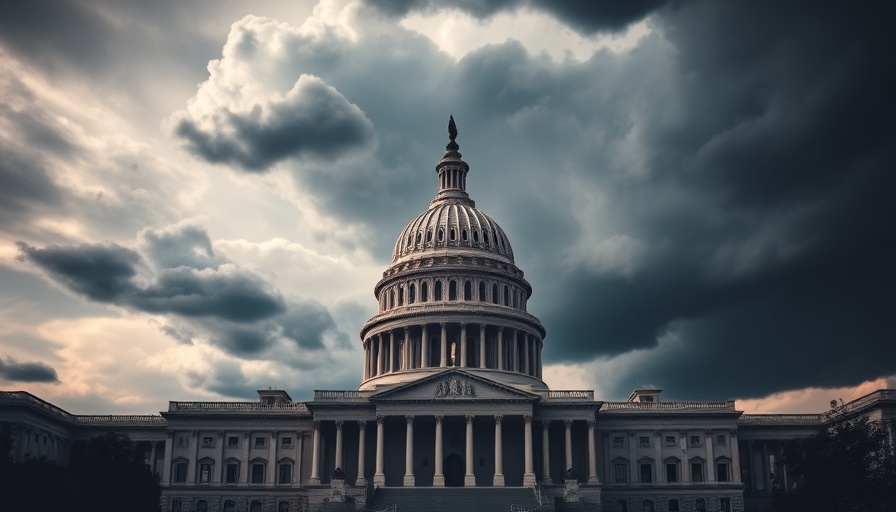
The Weight of Uncertainty: How a Government Shutdown Impacts Startups
The ongoing U.S. federal government shutdown introduces unprecedented challenges specifically for startups and the tech sector. While past shutdowns only yielded mild economic consequences, experts express growing concern that this prolonged shutdown may significantly disrupt crucial aspects of the ecosystem essential for entrepreneurial success.
Visa Delays: The Ripple Effects on Talent Acquisition
Central to the startup narrative is the adverse effect on visa processing. Many tech professionals operating under H-1B visas face an impending crisis; with the Department of Labor’s functionalities halting, the hiring pipeline critical to technology firms is entirely frozen. Experts, like immigration attorney Sophie Alcorn, point out that this disruption leads to anxiety among thousands of tech workers about their work status. CEO Michael Scarpati of fintech company RetireUS highlights that the paralysis of processes such as E-Verify places workers in precarious positions, potentially jeopardizing their employment and immigration status.
Disruption of Deal Flows and Regulatory Approvals
Not only do visa issues arise, but regulatory processes are likely to face significant delays. Startups, especially those in highly regulated industries like health tech or fintech, depend on timely approvals from various government agencies. With the current government shutdown in its early days, venture capitalist Jenny Fielding indicates that the timing coincides poorly with her firm’s fundraising efforts. According to her, uncertain investor sentiments often freeze capital flow crucial to growth, making startups more vulnerable in such politically charged environments.
Building Resilience Amidst Disruptions
As Garima Kapoor, co-founder of MinIO, suggests, startups should strategically plan for continued disruptions should the shutdown extend indefinitely. Proactive measures include transparent communication with partners and an unwavering focus on operational agility. This agility is essential not just for persistence, but for innovation. Encouragingly, Chris Chib of BlueFin Solves emphasizes that the spirit of innovation often propels startups to navigate through such tumultuous jurisdictions successfully.
Future Trends: A New Landscape for Startups
Historically, government shutdowns have drawn investor skepticism but ultimately proved non-catastrophic in their aftermath. According to research by UBS, while a full shutdown could reduce GDP growth incrementally, it often recovers once funding is restored, supported by back pay for furloughed workers. Despite this, the potential for capital scarcity during extended shutdowns changes the long-term outlook for startups. Leaders like Katherine Morgan, an astute news analyst, argue that this necessitates a shift in strategies, focusing on autonomous systems and self-learning infrastructures that can adapt to unpredictability.
Embracing Innovation in Times of Crisis
The chance for startups to showcase their resilience and creativity during the current turmoil fosters adaptation. The unpredictability may ultimately ignite breakthroughs in tech stack evolution or operational AI solutions. The future landscape, defined by emerging autonomous technologies and structured prompts, could well redefine what it means to thrive in a fluctuating environment. As we ponder the implications of this government shutdown, it becomes clear that strategic automation and deep systems insights may emerge as critical tools for navigating complexities in progressively digital enterprises.
Conclusion: The Path Forward for Founders
Startup founders must confront these challenges head-on with a robust plan for operational continuity. As the political dynamics unfold, staying informed and agile will be key to maintaining stability and fostering growth amidst uncertainty. Learn how to adapt your strategies to survive prolonged disruptions effectively, and seize the opportunities presented by shifting landscapes.
 Add Row
Add Row  Add Element
Add Element 



Write A Comment